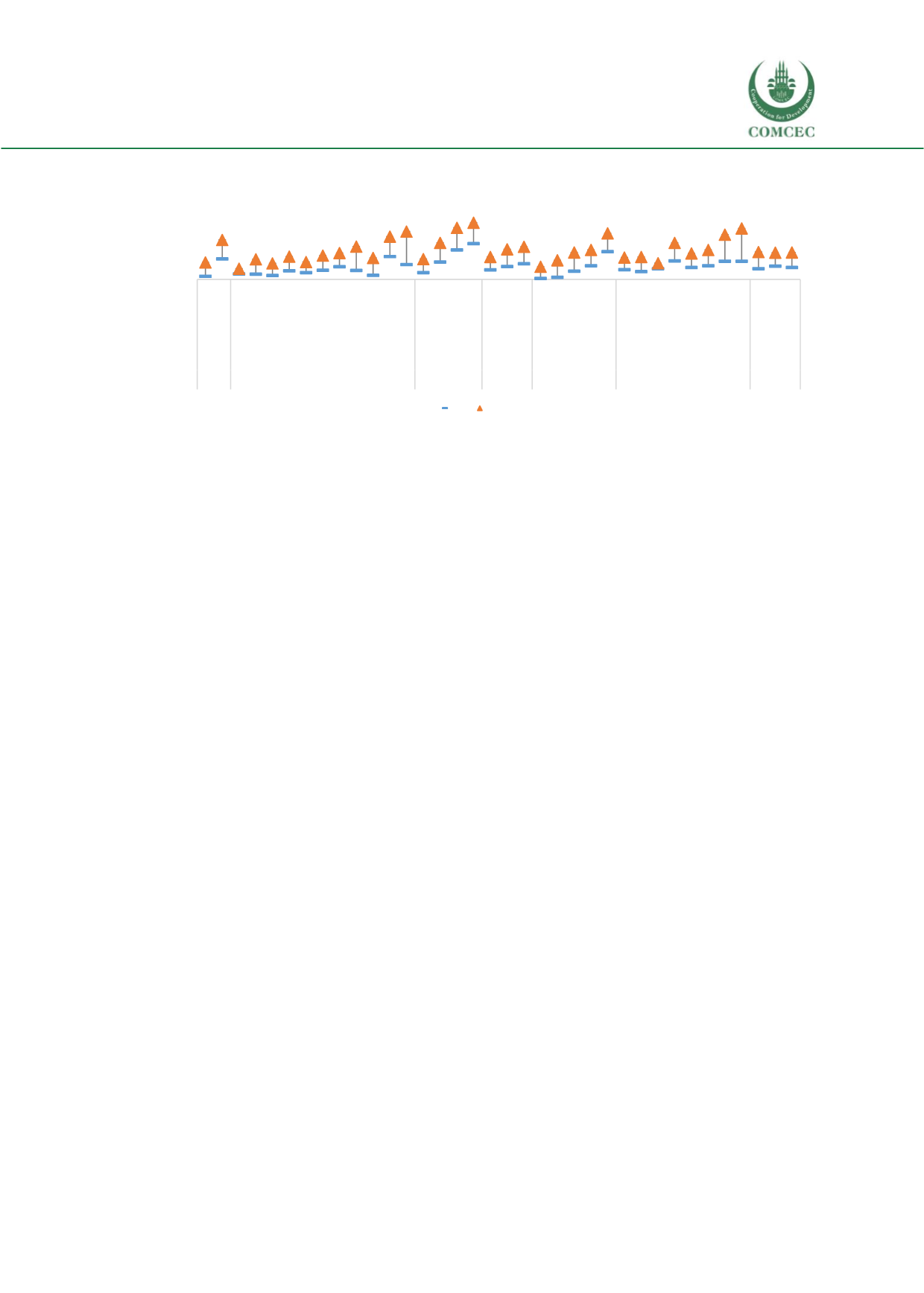

Education of Disadvantaged Children in OIC:
The Key to Escape from Poverty
221
D.
Finishing 8 years of education (16-18 year olds)
Note: Authors’ calculations using DHS 2005 and 2015.
Probit regression methodology and results for Senegal
Probit regressions
The second analysis used in the report is the probit regression method. The effect of
circumstances on school attendance and finishing school for children is measured using probit
regression making use of the most recent DHS dataset and another DHS dataset from 10 years
ago or more for each country. These regressions show the degree of the effect of circumstances
and which circumstances continue to matter. The probit equation that was used is as follows:
( ) = (
′
)
The circumstance variables X that are used in the probit regression is the same as the variables
that are used in HOI. These are location of the household, region of the household,
ethnicity/language (when available), gender of the child, education level of the household head
and household wealth.
Probit Results
Regression results confirm the negative effect of circumstances of children on children’s
education outcomes pointing to persistent inequality of opportunities in Senegal.
All
circumstances turn out to have significant negative association with education outcomes in
changing degrees. In summary the results are as follows:
Living in rural areas is negatively associated in increasing degrees with all education
indicators except finishing 5 years of education.
Living in some of the regions decreases the likelihood of attendance or finishing
education in 2015 while that was not the case in 2005.
Negative impact of having a household head with a low level of education is higher in
2015 as opposed to 2005.
0
10
20
30
40
50
60
70
80
90
100
Rural
Urban
Diourbel
Louga
Matam
Kaolack
Tambacounda
Fatick
Thies
Saint-Louis
Kolda
Dakar
Zuguinchor
No education
Primary education
Secondary Education
Higher Education
5 or more children
3-4 children
1-2 children
Quint 1 (Poorest)
Quint 2
Quint 3
Quint 4
Quint 5 (Richest)
Wolof
Poular
Non-Senegalese
Soninke
Madingue
Serer
Other
Diola
Female
Male
TOTAL
finishing 8 years of education (% of 16-18
year olds)
2005 2015
















